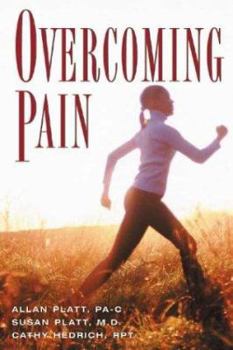Overcoming Pain
Select Format
Select Condition 
Book Overview
Designed to address the issues of the more than 48 million chronic pain sufferers in the United States, this guide to coping with and overcoming persistent pain examines pain in biological, cultural, and behavioral contexts. The treatment options for arthritis, back and neck pain, angina, diabetes, and other afflictions are outlined and explained, as are the advantages and disadvantages of non-medication-based therapy. Also critiqued are the disparities in quality and quantity of treatments received by African Americans in contrast to those received by the population at large. A diverse list of resources, including pain specialists and clinics, support groups, organizations, and web sites, is also provided. This description may be from another edition of this product.
Format:Hardcover
Language:English
ISBN:090787181X
ISBN13:9780907871811
Release Date:January 1988
Publisher:Eland
Length:316 Pages
Weight:0.95 lbs.
More by Allan Platt
Customer Reviews
7 customer ratings | 5 reviews
There are currently no reviews. Be the first to review this work.




















